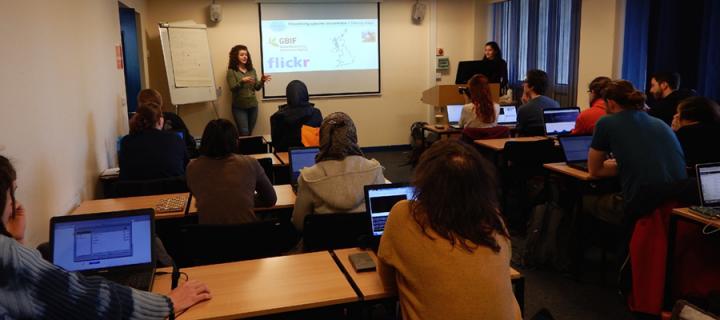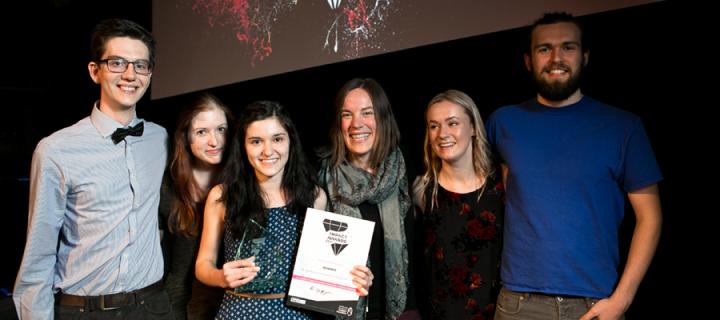Coding Club: a positive peer-learning community
A student-staff collaboration is helping people to improve their statistics and programming skills through workshops and online tutorials.

Increasing statistical and programming skills
Statistics and programming are subjects that students often find tricky. But instead of tackling these complex problems alone, they can now turn to a supportive community thanks to alumni donations to the Edinburgh Fund.
In autumn 2016, Dr Isla Myers-Smith was awarded an Innovation Initiative Grant of £2,720 to set up Coding Club, a peer-to-peer teaching initiative. The Club is a collaboration between academic staff, PhD students and recent graduates of the Ecology and Environmental Science programme. It aims to reduce statistics anxiety (worry about a lack of quantitative skills) and code fear (the fear of programming) among students in the School of GeoSciences, the School of Biological Sciences and beyond.
The alumni funding enabled the Coding Club team to deliver regular in-person workshops and develop online learning materials.
Students as learners and teachers
Coding Club is not a course but a non-assessed way for students and early career researchers across all stages to gain specific quantitative skills. The 2016-17 academic year saw the delivery of 15 student-led workshops. The topics included data visualisation and efficient data analysis. Gergana Daskalova, the primary Coding Club coordinator, managed the sessions along with an enthusiastic team of undergraduates and PhD students.
The peer-learning model means students are both learners and teachers. Both roles offer opportunities for gaining new insight, as PhD student and one of the Coding Club instructors John Godlee testifies:
Helping with Coding Club has taught me loads about effective teaching techniques. I feel much more confident about guiding a student through a problem rather than just giving them the answer, and I've learnt how to construct comprehensive learning resources.
Lifelong learning
Coding Club promotes lifelong learning. Its online learning resources are openly available, so alumni and members of the public can continue with their statistical and coding education.
As of April 2018, its website has received approximately 78,000 views from more than 32,000 unique visitors around the world.
Joe Boyle, a recent graduate of Ecological and Environmental Sciences, has been taking advantage of this. He tells us how Coding Club is improving his career prospects:
The high-quality online resources and open access mean that I'm still learning from Coding Club, with no sign of slowing down. One of Coding Club's great assets is that it involves a breadth of students, staff, and graduates, so in that sense I still feel a part of it, albeit remotely. Statistical, graphical, and general coding skills are highly sought after by employers, and the teaching and continued support from Coding Club gives me a lot of confidence while looking for work.
Meanwhile, fellow graduate Eleanor Walker shares how Coding Club flipped her perception of programming and encouraged her to continue developing her coding skills beyond her degree.
Through the use of interactive workshops, Coding Club managed to transform coding from something that was initially daunting, to an area that I found fun and rewarding. The workshops even inspired me to sign up to a series of workshops with 'Code First: Girls' after I had left the university.
Impact Award

Following a successful inaugural year in which over 200 people attended their workshops, Coding Club won Best Student-Staff collaboration at the 2017 Edinburgh University Students’ Association (EUSA) Impact Awards.
Reflecting on the win, Dr Myers-Smith felt that a key factor was the integration of undergraduate and postgraduate students, postdocs and staff in peer learning.
Looking ahead
Dr Myers-Smith is excited about the future of Coding Club and opportunities to widen its impact:
"We have been developing tutorials on wider topics to enhance coding skills for early career ecologists including in a variety of programming languages. We have also secured funding for one more year to continue to grow our initiative and are working on ways to build the programme into undergraduate and PhD training within the School of GeoSciences."
Related links
Student Experience Grants replaced Innovation Initiative Grants (IIG) in summer 2018.
Coding Club (external link)

